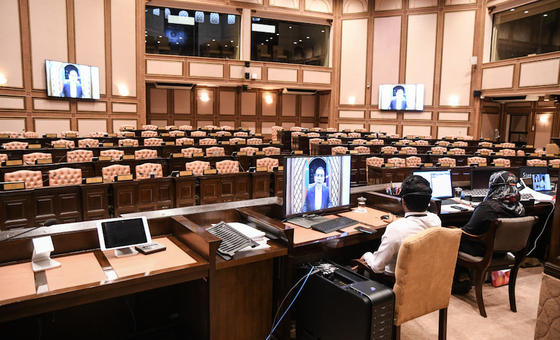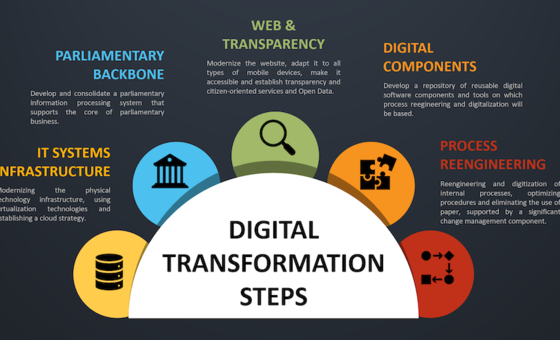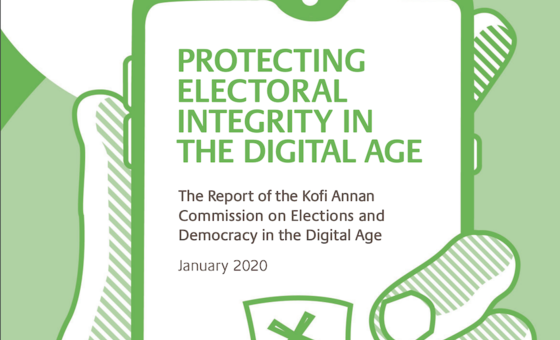- ImpactWe help parliaments to become greener and to implement the Paris agreement.We support democracy by strengthening parliamentsWe work to increase women’s representation in parliament and empower women MPs.We defend the human rights of parliamentarians and help them uphold the rights of all.We help parliaments fight terrorism, cyber warfare and the proliferation of weapons of mass destruction.We encourage youth participation in parliaments and empower young MPs.We support parliaments in implementing the SDGs with a particular focus on health and climate change.
- ParliamentsNearly every country in the world has some form of parliament. Parliamentary systems fall into two categories: bicameral and unicameral. Out of 190 national parliaments in the world, 78 are bicameral (156 chambers) and 112 are unicameral, making a total of 268 chambers of parliament with some 44,000 members of parliament. IPU membership is made up of 180 national parliaments
Find a national parliament
We help strengthen parliaments to make them more representative and effective. - EventsVirtual eventThe International Court of Justice (ICJ) was constituted under the United Nations Charter to help nations settle disputes peacefully in accordance with international law.
- Knowledge
Discover the IPU's resources
Our library of essential resources for parliamentsGlobal data for and about national parliamentsLatest data and reports about women in parliamentResolutions, declarations and outcomes adopted by IPU MembersRecent innovations in the way parliaments workThe latest climate change legislation from the London School of Economics' database
Issue 5
IPU Innovation Tracker
The quarterly electronic bulletin from the Centre for Innovation in Parliament
Issue 5
Welcome to the fifth edition of the Innovation Tracker. Parliaments are finding ways of working in spite of the lockdown, as we can see through the examples from the parliaments of Maldives and Spain. There is also a roundup of parliamentary working methods during the pandemic and a look at how we can safeguard elections in the digital age.
Innovation Tracker contributions
We are posting examples of innovation in parliament on Twitter using the hashtags #innovation #parliament. Please join us in using these hashtags, or send us good examples that we can share!
Do you have an example of innovative parliamentary working methods to share in the Innovation Tracker? Tell us about it via this online form or by e-mail to [email protected].
Innovation in parliamentary working methods
Parliaments in Brazil, Spain and the Maldives have developed innovative ways to run virtual plenaries; others are testing this out. The coronavirus pandemic demands that parliaments look for more innovative ways to keep operating. A crisis can be an opportunity for innovation but there are also some major challenges on the road to remote parliament and no instant digital solutions.
We often associate leadership in digital innovation with the big parliaments but the Maldivian Parliament shows us that being small means you can also be agile and responsive. With a strong ICT strategic planning process already in place and a pragmatic agreement that existing parliamentary rules are sufficient to run the parliament virtually, it has become one of the first in the world to host a virtual plenary during the coronavirus crisis. In this article, the People’s Majlis explains how it took a range of already available software applications and brought its members together remotely, enabling debates and voting, whilst retaining the ability to broadcast proceedings.
The Senate of Spain has been building a digital parliament, gradually implementing solutions and updating regulations and procedures. This transformational project has required a continuous redesign of procedures, of the organization and of its culture. The five-phase project commenced in 2015 and is ongoing. It aims to modernize the physical technology infrastructure, establish a parliamentary information system, enhance transparency and citizen-oriented services online, transform parliament’s way of working and roll out a core set of applications across the whole estate.
Parliamentary action on tech trends
Social media might not be the cause of our current democratic challenges but they exacerbate and intensify them to dangerous levels. This is one of the key findings of the Annan Commission on Elections and Democracy in the Digital Age, which calls for urgent action by governments, business and civil society to protect democracy from digital threats. The Commission’s new report sets out actionable recommendations to deal with polarization, hate speech, disinformation, political advertising and foreign interference.
-
Impact
- Our work
- Climate change
- Democracy and strong parliaments
- Gender equality
- Human rights
- Sustainable development
- Peace and security
- Youth participation
- Parliaments
- Events
- Knowledge
-
About the IPU
- About us
- Contact us
- Work with us
- Objectives
-
Structure and governance
- President
- Assemblies
-
Governing Council
- Committee on the Human Rights of Parliamentarians
- Committee on Middle East Questions
- Group of Facilitators for Cyprus
- Committee to Promote Respect for International Humanitarian Law
- Advisory Group on Health
- Forum of Women Parliamentarians
- Forum of Young Parliamentarians
- High-Level Advisory Group on Countering Terrorism and Violent Extremism
- Working Group on Science and Technology
- Executive Committee
- Secretary General
- Secretariat
- Association of Secretaries General of Parliaments
- Members
- Strategic partnerships
- Statutes and policies of the IPU
- Budget and finance
- Gender-equal IPU
- History of the IPU
- The Cremer-Passy Prize
- News








